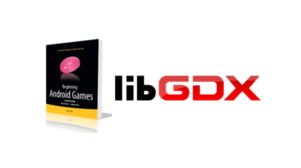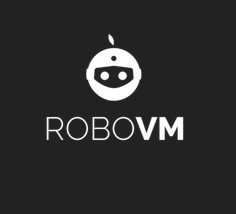| Microsoft Closes RoboVM - What Should Devs Do? |
| Written by Lucy Black | |||
| Monday, 18 April 2016 | |||
|
RoboVM, a technology that allows you to run Java applications on iOS devices, is widely used by game developers. The news that it is to close comes as a blow to those developing games with libGDX, but a lifeline is already under construction.
Put simply, the idea behind RoboVM is to let you code in Java on iOS rather than Objective C or Swift. When we first reported in 2014 on it was an open source project but the following year the open source project was closed down and when we reported RoboVM 1.0 Released it was with commercial licences from Trillian Micro. Within six months RoboVM was acquired by Xamarin. At first this seemed like good news for those developing iOS ganes with libGDX as Xamarin CEO Nat Friedman tweeted that: "RoboVM Business edition is is now free for any indie dev that uses libgdx" Responding to the supplementary question "for how long" with: "For as long as I'm CEO of Xamarin" Another six months down the line Microsoft acquired Xamarin, in a move that struck us as very positive without realizing the negative consequences for RoboVM. Explaining the notice that has appeared on RoboVM's landing page that states that RoboVM is winding down and that there will be no further development or distribution, a blog post from the team reads: Over the past few weeks, we’ve been working with the teams at Xamarin and Microsoft to assess the technology and business conditions of RoboVM to determine the path forward for the products. After looking at the complete landscape for mobile development with Java, the decision has been made to wind down development of RoboVM. Speculation elsewhere about the decision includes the idea that Microsoft's decision is to avoid being sued by Oracle. Given the Microsoft currently seems to have a proclivity to open sourcing projects - it made Xamarin free and open source as part of the .NET Foundation earlier this month - it is perhaps surprising that it isn't handing RoboVM back to the open source community where it originated. Perhaps this would still have run some risk of litigation and as it's not .NET it couldn't easily be put into Microsoft's preferred open source basket. So what does this mean for those who used RoboVM. According to the blog post current paid or complimentary subscription will continue until April 30th 2017 to give dev time to transition to an alternative and full refunds are available on request to those who purchased licences.It also outlines a some possible options for migration forward, such as using Xamarin tools and alternative Java SDKs which target iOS. It makes specific mention of the fact that libGDX recently announced their support for Intel’s Multi-OS Engine, making it an alternative for the majority of RoboVM’s active developers.
Following up the link given to this option leads to a blog post, RoboVM is no more, what now? by Mario Zechner, founder of the LibGDX project. He goes through the pros and cons of the following six possible options for RoboVM devs:
After ruling out the first four he concedes that, despite shortcomings, the fifth, Xamarin + IKVM, would probably win in the absence of the Intel Multi-OS Engine, formerly known as Migeran. Explaining that a new libGDX backend has already been written for Multi-OS engine Zechner outlines a roadmap for libGDX that makes the Multi-OS engine the default engine for newly created libGDX projects by the end of next week. While the roadmap includes the safety net of keeping the RoboVM backend around until the licences expire in April 2017, Zechner recommends switching over to the Multi-OS Engine as soon as possible.
More InformationRelated ArticlesMicrosoft Buys Xamarin - About Time Too Xamarin Now Free - Does This Change Everything Or Nothing?
To be informed about new articles on I Programmer, sign up for our weekly newsletter, subscribe to the RSS feed and follow us on Twitter, Facebook, Google+ or Linkedin.
Comments
or email your comment to: comments@i-programmer.info |
|||
| Last Updated ( Tuesday, 19 April 2016 ) |





